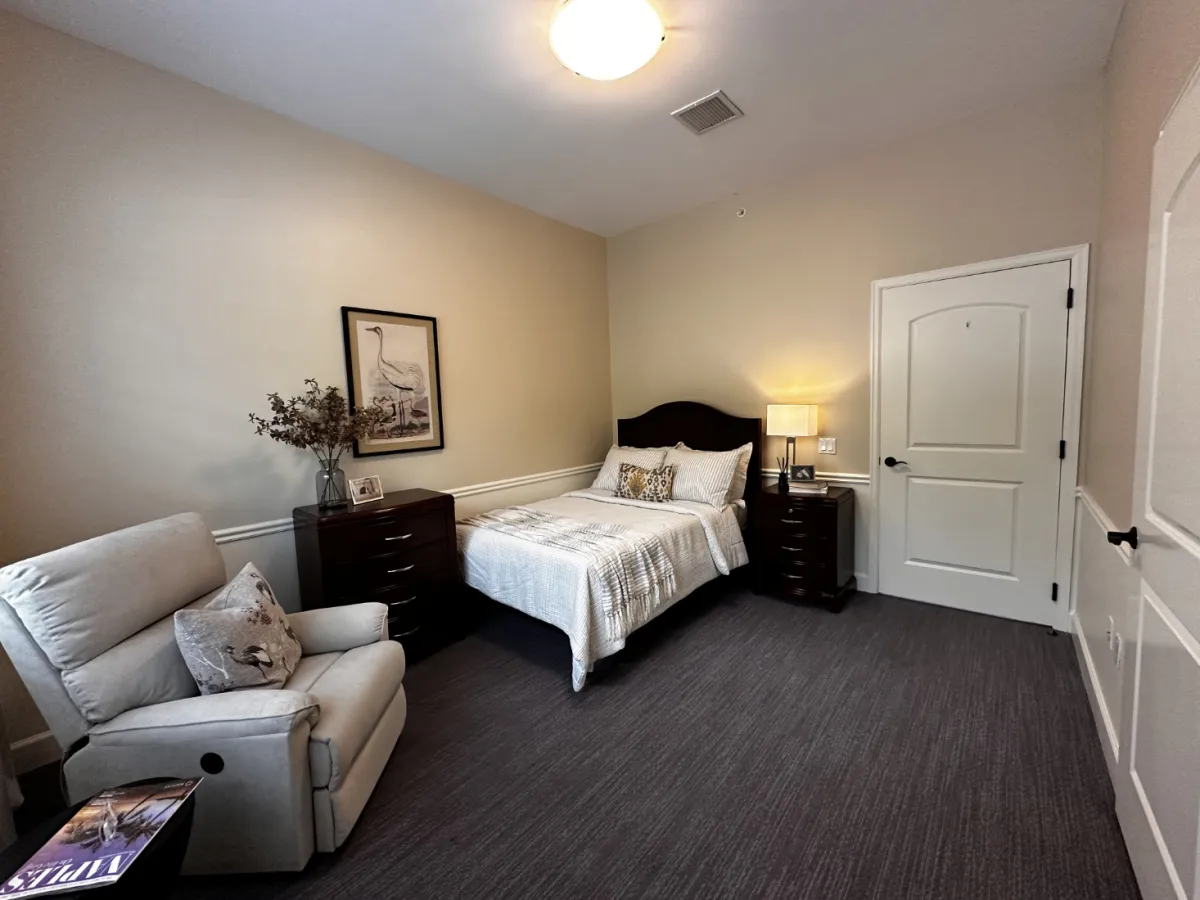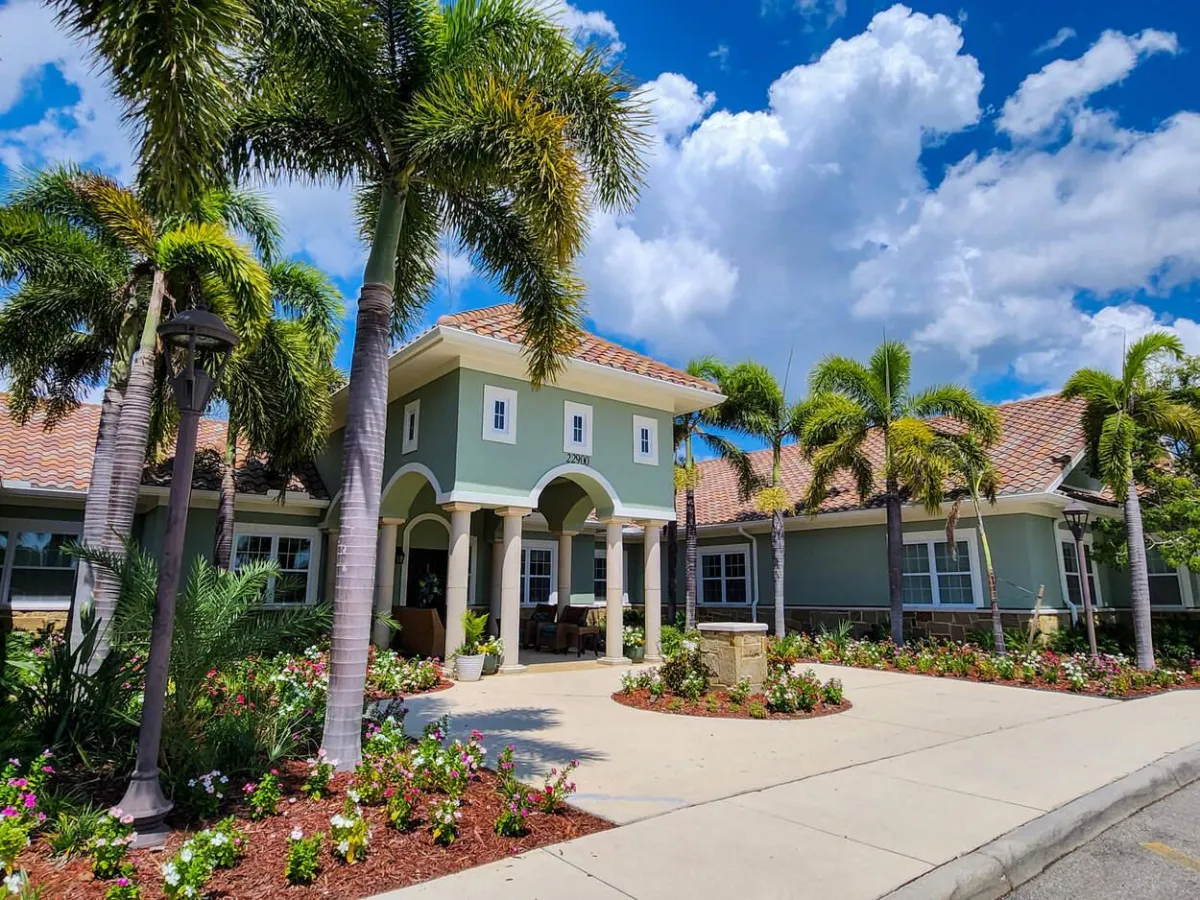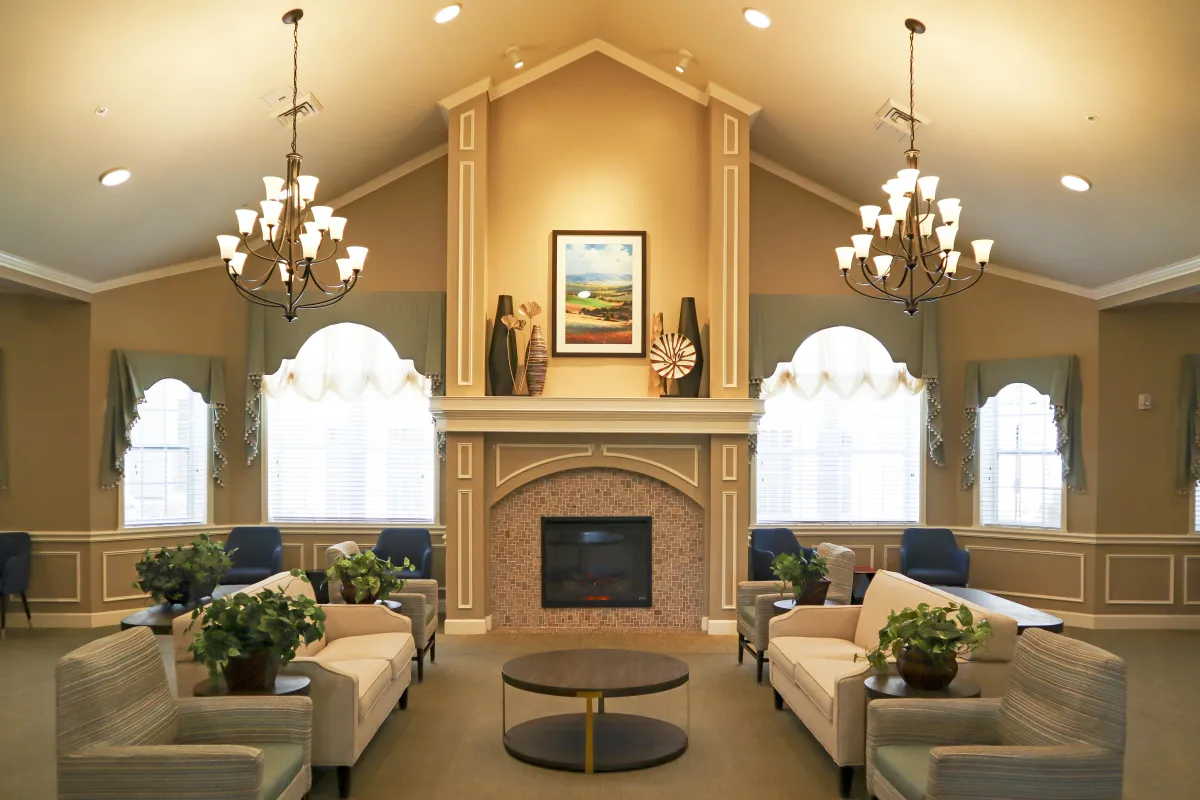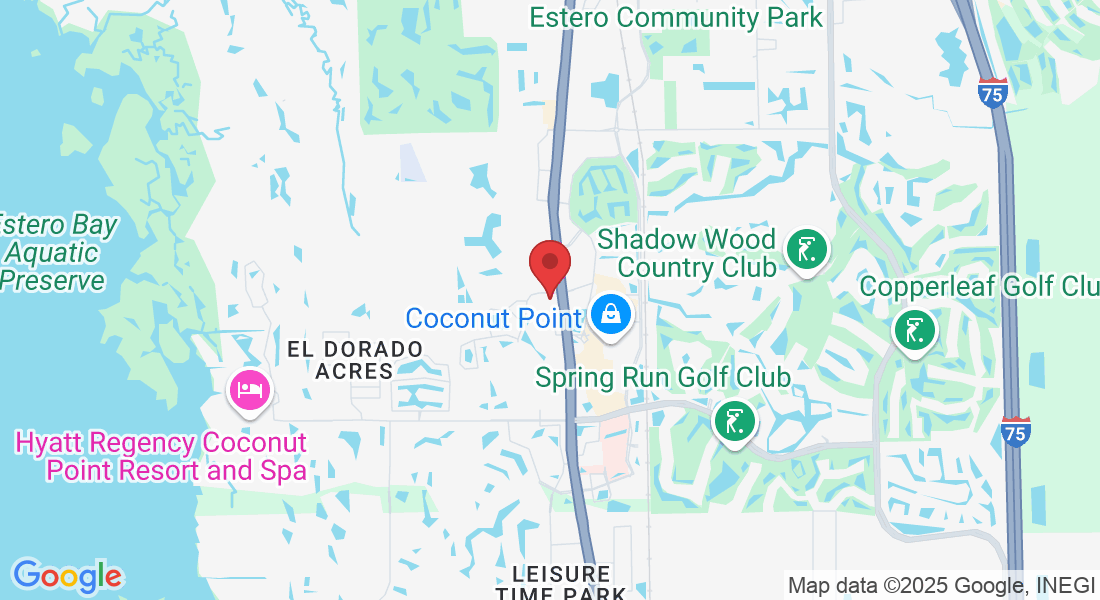About The Community
Here, you will discover a friendly Respite Care, Memory Care, Alzheimer's Care, and community where every day is celebrated with delicious meals, fun and enriching activities, and an inviting atmosphere that feels like a family get-together. See for yourself and take a virtual tour of our community.

"Gulf Coast Memory has been a blessing for my Father as well as our family. The staff is very caring and compassionate and treat the residents like family. My Father refers to GC as his home and the peace of mind that gives to my family and I is priceless."
Your family's freedom to thrive is our top priority.

Personalized Memory Care in Estero
Our community is designed with comfort and security in mind, featuring private suites, tranquil common areas, and secure outdoor spaces. Every detail supports the dignity and independence of our residents, while offering peace of mind to families.
24/7 on-site care and support
Staff specially trained in dementia care
Personalized daily routines
Family involvement and communication
Engaging Daily Activities That Promote Well-Being
Cognitive stimulation, connection, and joy are essential to our residents’ quality of life. Our structured activity programs are crafted to support memory retention, mobility, and emotional well-being.
Art and music therapy
Group and one-on-one activities
Physical and mental stimulation
Brain fitness and memory training

Meals Made With Care, Just Like Home
Every meal is thoughtfully prepared with fresh ingredients. Our culinary team creates comforting, home-style dishes that support each resident’s health and well-being. We accommodate personal tastes and dietary needs, making mealtime both nourishing and enjoyable.

Private, Comfortable Living Spaces for Seniors
Residents enjoy spacious private suites thoughtfully designed for both comfort and safety. Every element, from calming color palettes to personalized decor, helps create a familiar and soothing environment. Each suite features individual climate control, emergency response systems, and an adaptive layout to support accessibility.
Housekeeping and laundry services are included, ensuring a clean, stress-free living space tailored to each resident’s needs.


Smart Wellness Technology
Gulf Coast Memory Care offers Amba Smart Wellness Technology in select rooms, providing discreet monitoring of sleep, movement, and vital signs. With no cameras or microphones, this passive system alerts our care team to unusual activity—supporting early intervention while preserving privacy and independence.
Monitors sleep patterns and vitals
Tracks nighttime movement
Sends alerts for unusual activity
Maintains privacy at all times
Additional Resources

The Ultimate Dementia Caregiver Checklist – What You Need to Know
Caring for a loved one with dementia is a journey filled with love, patience, and, at times, overwhelming challenges. Whether you're providing care at home or considering an assisted living community, being prepared can make a world of difference—for both you and your loved one.
This guide walks you through everything you need to know as a dementia caregiver, offering a practical checklist to ensure your loved one receives the best possible care.
Understanding Dementia Care Needs
Dementia affects more than just memory—it impacts daily routines, emotional well-being, and overall quality of life. The level of care needed will depend on the stage of dementia, but one thing remains constant: structure, safety, and compassionate support are key.
For some families, providing care at home is manageable in the early stages. However, as dementia progresses, round-the-clock supervision may become necessary. This is where a memory care community can offer invaluable support, providing specialized dementia care in a safe, structured environment.
Wherever your loved one is on their journey, having a solid caregiving plan can help reduce stress and ensure they receive the care they need.
The Essential Dementia Caregiver Checklist
1. Establish a Daily Routine
Predictability is comforting for individuals with dementia. Establishing a structured daily routine helps minimize confusion and anxiety. Consider including:
Regular meal times to encourage healthy eating habits.
Consistent wake-up and bedtime schedules to regulate sleep patterns.
Daily activities such as light exercise, music therapy, or simple household tasks to encourage engagement.
Dedicated quiet time to help prevent overstimulation.
Even small disruptions can be unsettling, so maintaining consistency is key.
2. Create a Safe and Comfortable Environment
Safety is one of the biggest concerns in dementia care. Simple adjustments can help prevent accidents and promote independence.
Remove tripping hazards (rugs, clutter, or furniture with sharp edges).
Install grab bars in the bathroom and handrails in hallways.
Use soft, even lighting to reduce shadows and confusion.
Consider passive monitoring technology, like motion sensors, which can detect unusual activity patterns, such as frequent nighttime wandering.
Label doors, drawers, and commonly used items to help with recognition.
If your loved one is in a memory care community, you’ll want to ask about their safety measures, such as secured outdoor areas and staff training in dementia care.
3. Medication & Health Management
Managing medications and keeping track of health conditions is crucial. Many individuals with dementia take multiple medications, which can become overwhelming.
Maintain a medication schedule and use a pill organizer.
Schedule regular medical check-ups, including vision and hearing tests.
Monitor for signs of dehydration or malnutrition, as dementia can impact appetite and thirst awareness.
Keep a record of any behavioral or physical changes that may indicate new health concerns.
Many assisted living communities offer medication management services, which can be a huge relief for caregivers.
4. Support Emotional & Social Well-Being
Dementia can be isolating, both for the individual and their caregivers. Social interaction and emotional support are just as important as physical care.
Engage in memory-stimulating activities, such as storytelling, looking through old photos, or listening to familiar music.
Encourage light physical activities, such as short walks or chair exercises, to improve mood and mobility.
Foster social connections through visits with friends and family, or by participating in group activities in a memory care community.
Pay attention to emotional cues—frustration, agitation, or withdrawal may signal unmet needs.
Caregiving is emotionally demanding, so don’t forget to take care of yourself, too. Joining a dementia caregiver support group can provide a safe space to share experiences and receive encouragement.
5. Legal & Financial Planning
Dementia care can be costly, and planning ahead is essential. Having legal and financial affairs in order ensures your loved one’s wishes are respected and that care decisions can be made without unnecessary stress.
Establish or update a power of attorney for healthcare and financial matters.
Discuss long-term care options and costs, including memory care communities.
Research financial assistance programs, such as Medicaid or veterans’ benefits, if applicable.
Keep important documents (insurance, medical history, living will) organized and accessible.
Legal conversations can be difficult, but having them early will prevent confusion down the road.
When to Consider a Memory Care Community
Many families struggle with the decision of whether to move their loved one into a memory care community. While home care can work for some, there may come a point when professional care is the best option.
Signs it may be time to consider assisted living for dementia care:
Increased safety concerns, such as frequent falls or wandering.
Difficulty managing daily hygiene, meals, or medication.
Unmanageable behavioral changes, such as aggression or extreme confusion.
Caregiver burnout—if you’re feeling overwhelmed, it’s okay to seek support.
What to Look for in a Memory Care Community
Not all assisted living communities are the same. When exploring options, consider:
Staff training in dementia care and behavior management.
Safety features, including secured outdoor spaces and discreet monitoring technology.
Personalized care plans tailored to different stages of dementia.
Meaningful activities designed to stimulate cognitive function.
A warm, welcoming atmosphere that feels like home.
A quality memory care community will offer not just care, but connection, comfort, and peace of mind.
Final Thoughts & Helpful Resources
Dementia caregiving is a challenging but deeply meaningful journey. By having a structured plan and knowing when to seek additional support, you can ensure your loved one continues to live with dignity and quality of life.
Whether you're caring for a loved one at home or considering a specialized memory care community, this checklist provides a strong foundation for making informed decisions.
If you're looking for compassionate, expert-led dementia care, Gulf Coast Memory Care is here to help. Reach out today to learn more about how our dedicated team can support you and your loved one on this journey.
Contact Us to learn more about our memory care community and how we can provide the best possible care for your loved one.

Gulf Coast Memory Care
(239) 221-6120
22900 Lyden Dr, Estero, FL 33928
AL# 12921









